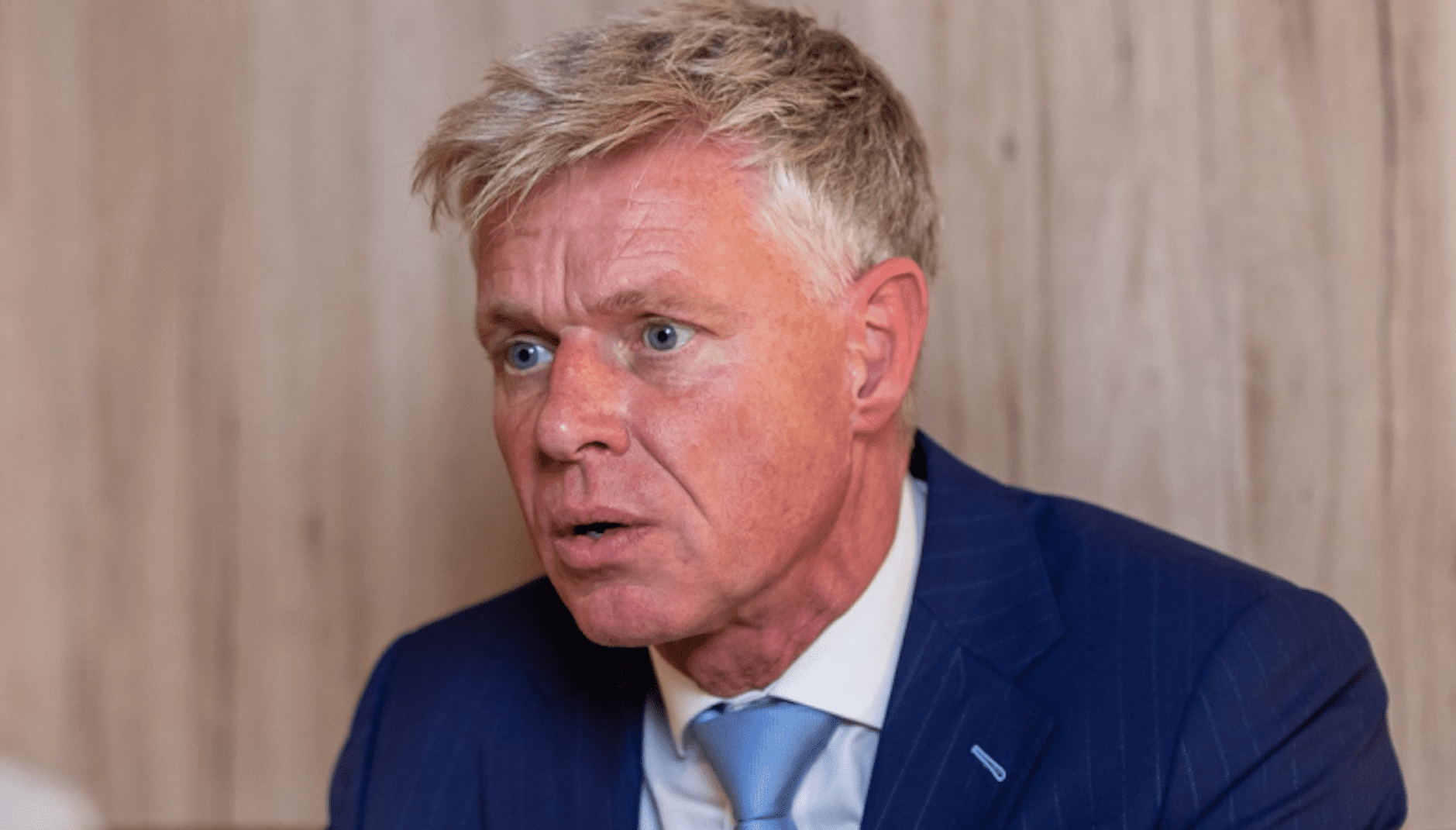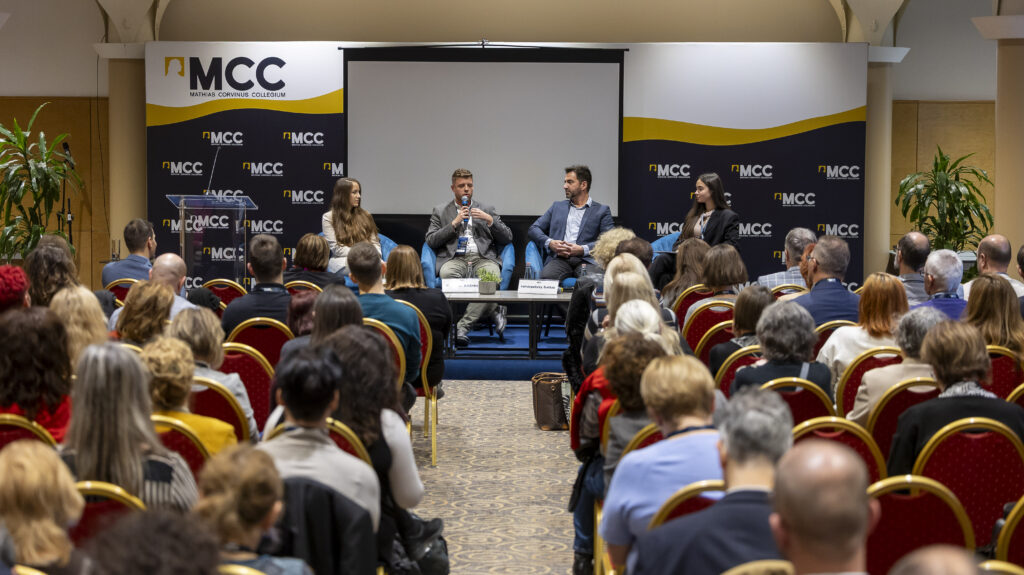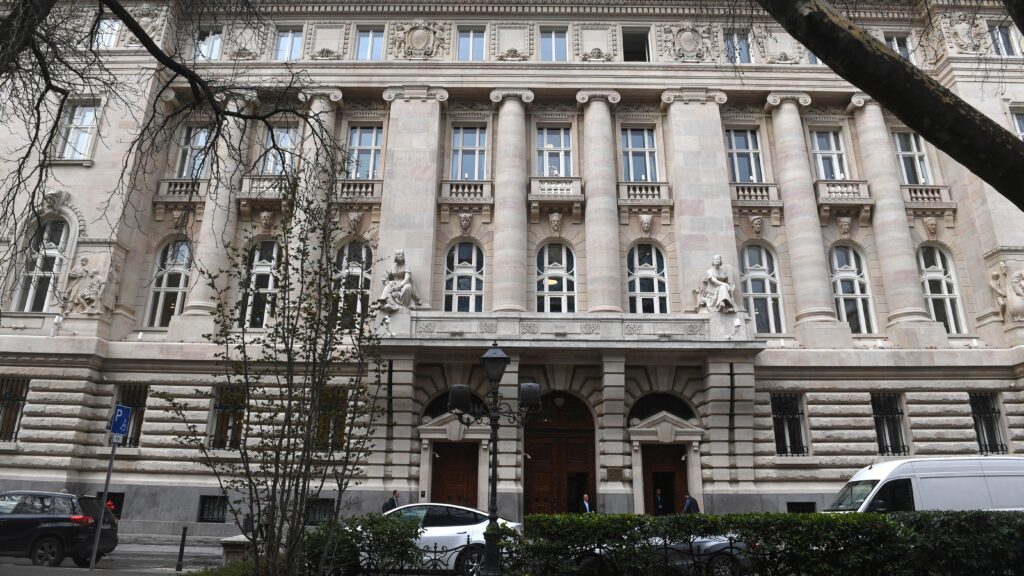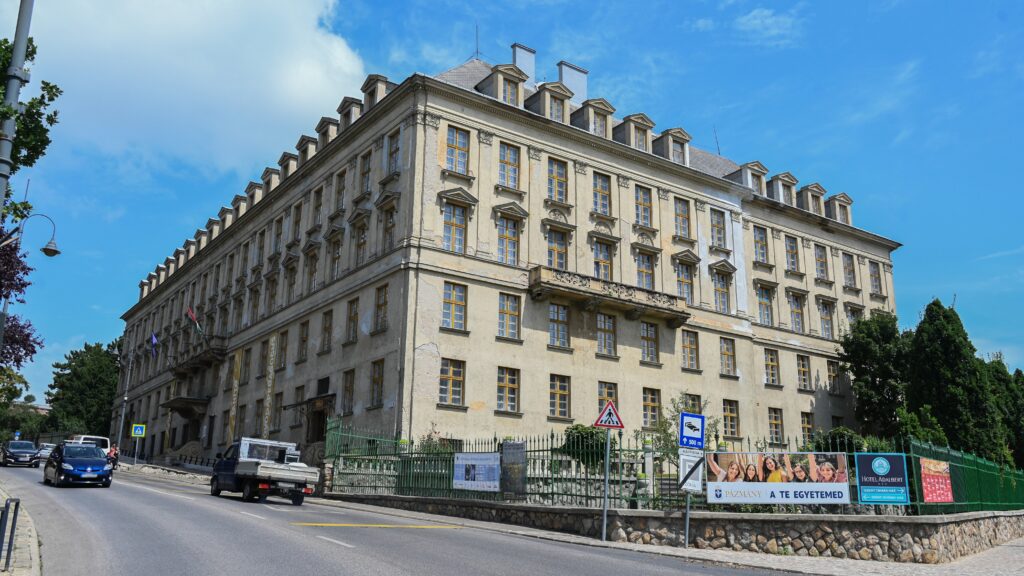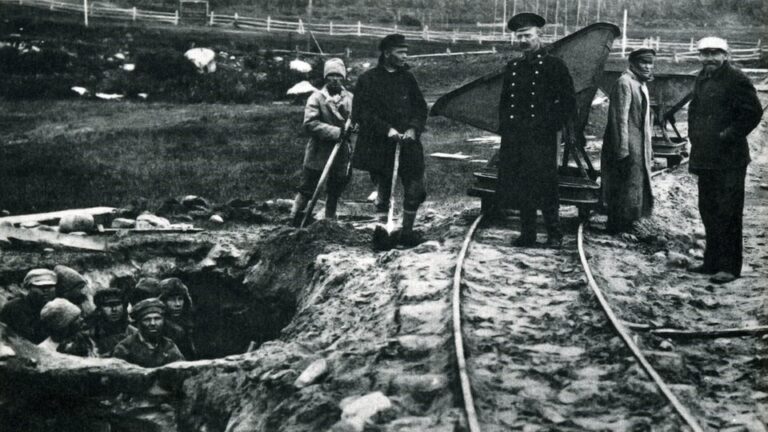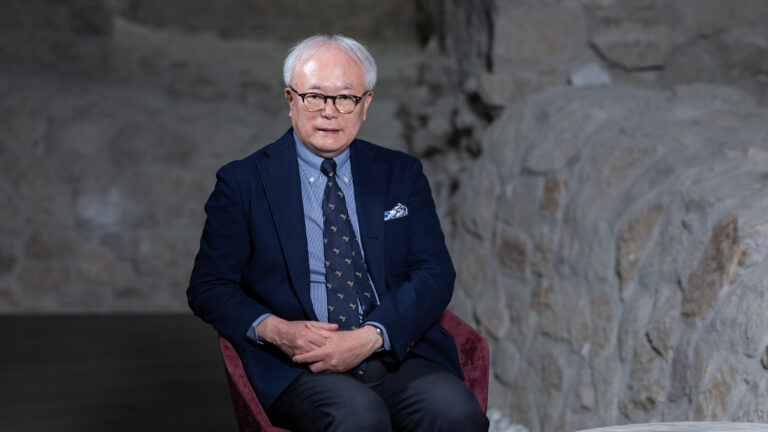Rob Roos is a Dutch Member of the European Parliament (MEP) since July 2019 and is a member of the JA21 political party.
You are an engineer by profession, with substantial experience in the energy sector, and a successful businessman I understand. According to information I found on the internet, you have founded eight companies in total, but relatively late in your life, in 2018-2019. Then you went into politics. What was your motivation?
Yeah, I actually founded nine companies, only one never made it into the track record. I was always interested in politics. Since I could read, I was always reading the newspaper. Always reading about national politics and also foreign politics. It has always been there. But until 2017 I was never a member of any political party in my life. Because I was too busy with businesses. But in 2017 I became a member of a new political party in the Netherlands which was actually a movement. I am not there anymore because we have differences of opinion. At that time I told them I can help you because I know how to build organizations. And that is how I became involved in politics. I was never meant to be active in politics, just behind the scenes, but sometimes it has to be that way. I do not believe in coincidence.
You seem to be very sceptical…
Or realistic!
Yes, realistic, as you put it, yes, that is the right word, towards hot issues like climate change. Or rather climate change alarmism, and have said that many who advocate that climate change is the number one challenge of our time play to people’s emotions and in fact spread disinformation. Can you elaborate on that and give us some examples?
If you really think climate is a problem, you invest in nuclear power plants. But they do not want that. I am in favour of phasing out fossil fuels
Yes. I definitely do not believe there is a climate emergency. And also there is no science for that because it is not in the IPCC (Intergovernmental Panel on Climate Change) reports. It is something that is created in the European Parliament, climate emergency is, to scare people, and to push the Green Deal. Which will have a huge impact on people’s lives, in a social and economic sense. If you really think climate is a problem, you invest in nuclear power plants. But they do not want that. I am in favour of phasing out fossil fuels. I think fossil fuels have brought us a lot of prosperity. Let’s say 150 years ago the average life expectancy was 50 years, now it is 82, and the only reason we have achieved that is payable energy which makes people healthier. And now the environmental activists and the NGOs are trying to get the idea into our minds that it is dangerous, which is crazy. I think it is good to phase out fossil fuel but you have to do it on a realistic basis. If you get rid of fossil fuel, the only thing that we have now is nuclear power. Nuclear power will produce some waste, it is not very much, they make a big thing out of it but it is really not much, but we also have to invest in molten salt reactors (editor’s note: A molten salt reactor (MSR) is a class of nuclear fission reactor in which the primary nuclear reactor coolant and/or the fuel is a molten salt mixture.) In ten years, if we put all kinds of scientists in a pressure cooker, we can have molten salt reactors, within ten years, I am convinced of that. They say it is fifteen years, but if you have a task force, you can accelerate that. And that will also solve the problem of nuclear waste, because what is waste now, will be the fuel then. And molten salt reactors are fairly safe, they do not create nuclear waste, so that is a real innovation and a solution. But they do not want that. They want renewables, which is really impossible, because the energy crisis that we have now, is actually caused by the mistaken energy transition. We phased out all the reliable energy sources that we have, and instead we introduced unreliable energy sources, because we depend on solar and wind. To compensate that, to have some reliable energy resource, we are burning forests, to save the planet, and we call it biomass, which is a very good marketing name, biomass sounds very good, but it is crazy to burn. Mr Frans Timmermans—he is also from the Netherlands—we have had a lot of discussions with him, is always talking about biodiversity. But how can you defend biodiversity if you are burning complete forests? Also, wind turbines on the land will have a huge impact on the landscape and also on biodiversity. Off-shore wind energy – the same. The sea is nature. This whole climate change issue started because we had to save the Great Barrier Reef. But now we are installing 100,000 wind turbines on the North Sea. So it is very hypocritical what they are doing, and you cannot have a real discussion about it. I predicted this energy crisis years ago. If you have a transition with renewables, I said, we are going to have problems, and we are now. They blame Mr Putin, he really is a bad guy, but he is not the problem. We empowered Putin with all this money and we depend on him to have some energy. And it is a huge problem. Today in the plenary I also spoke about this issue. The energy markets, the financial markets they have run out of liquidity, they are in complete panic. Which means that if we do not react very fast, and I plead to fire up all the coal power plants that we have in Europe, to start up all the nuclear power plants that we have in Europe, everything that we have, we have to reopen. They were closed but we have to restart them, because otherwise we will face an enormous economic crisis with mass unemployment. As opposed to that, my colleagues in the European Parliament are still urging the acceleration of the energy transition, with renewables, but that’s not realistic any more. That is why I also said that we have to get rid of this Parliament, because it is nothing.
It seems to me that positions and debates on energy have become a matter of faith and political convictions rather than rational discussions. Moving on to another topic: I have seen that on Twitter you said ‘Artificial intelligence is the new industrial revolution. It’s very important that Europe wins this battle. I argue in favour of fully committing to this and at the same time, defining very clearly in the law who is responsible for the end product.’ What did you mean exactly by that?
Well, as to artificial intelligence – by 2029, machine learning will be as smart as human beings. This is what they predict. So if you are able to compete with the smartest people in the world, through artificial intelligence, you may become able to solve energy problems and medical issues, but artificial intelligence will also be used for military purposes. In that regard we have to compete with China, and with Russia, because Putin is a bad guy but so is Xi Ping, he is a danger to the free Western world, China has been working for decades on becoming dominant militarily, technologically and economically. So we have to compete with them. And we have no time to waste – their budget is ten times higher than what we spend on AI in Europe. So they are ahead of us and we have to do a lot of work to get to the same level. Now, the issue with artificial intelligence is that there are producers of artificial intelligence and users of artificial intelligence. The producers have said we are not responsible for how users will use the product because AI will learn from their own data, the users’ data, and producers have no control over those data. The users, on the other hand, have no idea what the program does, so there are borderline cases. Of course you can enter a contract and define things, but even that is already quite difficult, but who knows what will happen after one year, after five years, or ten years, because the system will learn by itself. They do not know the sources, they don’t know what the data are, and there is an issue.
A huge issue… Last October you were one of the few MEPs who wrote a letter of protest to the President protesting the plan to impose a digital green pass the next week to gain access to EP buildings. What happened to that plan and why did you and the other signatories think that it was important to protest?
Also, I am a representative of the people and I was not allowed to enter Parliament to vote, to have debates and to speak in Parliament, unless I was tested a couple of times a week
It was not just a protest, I also launched a lawsuit against the Parliament, because we were required to have a QR code. So we already knew at that time that the vaccine was not preventing the transmission of the virus. So this QR code – I have one now because I had Covid so I am now recovered – at that time we needed a QR code to enter the Parliament and that gave a false feeling of safety. Also, I am a representative of the people and I was not allowed to enter Parliament to vote, to have debates and to speak in Parliament, unless I was tested a couple of times a week. If it works, I am not against it. But my colleagues, they could come coughing and sneezing to Parliament, because they were vaccinated, but they were spreading the virus all over the place. And I was tested, three, sometimes four times a week, otherwise I was not allowed in. I’m not against vaccination, I’ve had them all, but for Covid, I concluded I am not in the risk group – I am healthy, I am fit. I said to myself I would wait, I will wait and see what is going to happen because it was available in the market very fast, without proper testing. As far as my parents, who are in their eighties, I said perhaps it is better if they do get vaccinated, but I think it should be a free choice. If you do not want the vaccine, it should also be your free choice. We are at a conservative conference here, and conservatism is among others things about making your own choices, individual freedom and respect for each other. So that is why I spoke out in Parliament and also started this lawsuit, because I really think it is a problem for democracy if only likeminded people can enter the parliament, as was the case at the time.

